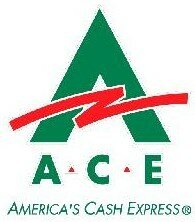Payday Loan Company Refutes National Report
By Paul RizzoPayday Loan Writer
A recent report issued by the National Consumer Law Center is absent what should be a critical element of any report: the facts.
 The June 2007 report on utilities and payday advance lenders concludes that there is a link between companies like ACE accepting utility payments and offering short-term loans. According to ACE, the report relies on innuendo, anecdotes, and casual observations to make misleading conclusions.
The June 2007 report on utilities and payday advance lenders concludes that there is a link between companies like ACE accepting utility payments and offering short-term loans. According to ACE, the report relies on innuendo, anecdotes, and casual observations to make misleading conclusions.
ACE, a payday loan company, processed over 6.3 million utility and bill-payment transactions during the 12 months ended June 30, 2007. In a sample of 602,524 utility and bill-payment transactions, ACE identified 5,823 customers, or 1%, who also became short-term loan customers on the same day that they paid their bill.
Ninety-nine percent (99%) of ACE customers in this sample were not users of ACE’s short-term loan product on the day that they paid their bill at ACE.
In a report to be issued to ACE’s Board of Directors, Grant Thornton LLP has compared the computations and calculations that ACE used to prepare this cash advance analysis and did not have any exceptions.
“The National Consumer Law Center report fails to present the facts about payday loans and utility payments, and consists of erroneous arguments and false conclusions,” said Jay B. Shipowitz, President and Chief Executive Officer of ACE Cash Express. “The fact of the matter is that these are two separate customer groups with minimal crossover. Our bill payment service is a tremendous convenience and usually a lower cost option to our customers. It is shocking to us that anyone would want to eliminate this convenient and economical service.”
The report confesses that the National Consumer Law Center did not use data to reach their conclusions, when they state:”
“Available data offers no way to measure how many utility bill payers have been put on the road to becoming payday loan customers.”
This statement reveals the fundamental flaw of the report and the danger of drawing conclusions without factual data. Consumers will not be served if their choices in how they make their utility payments are arbitrarily taken away.
